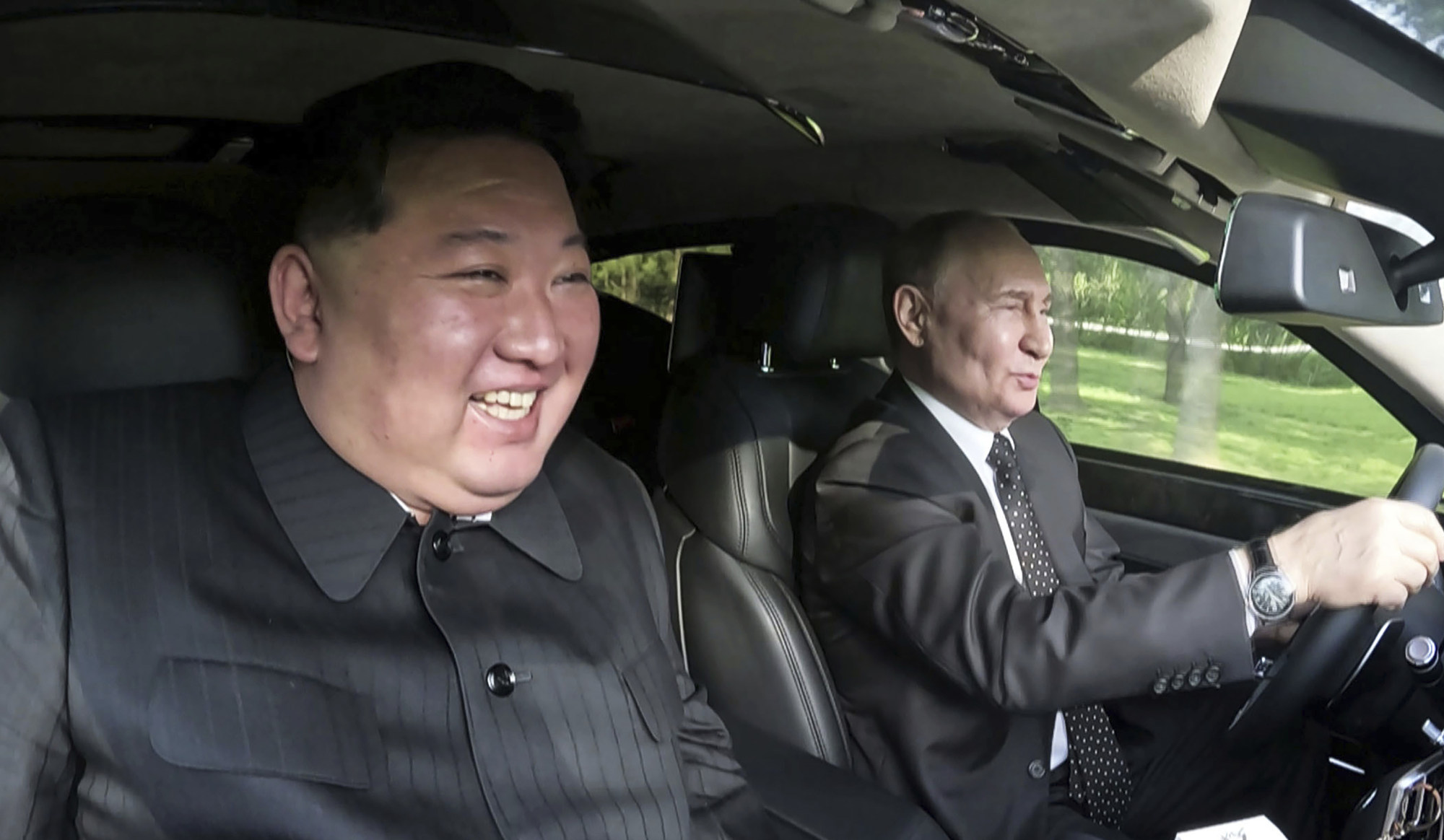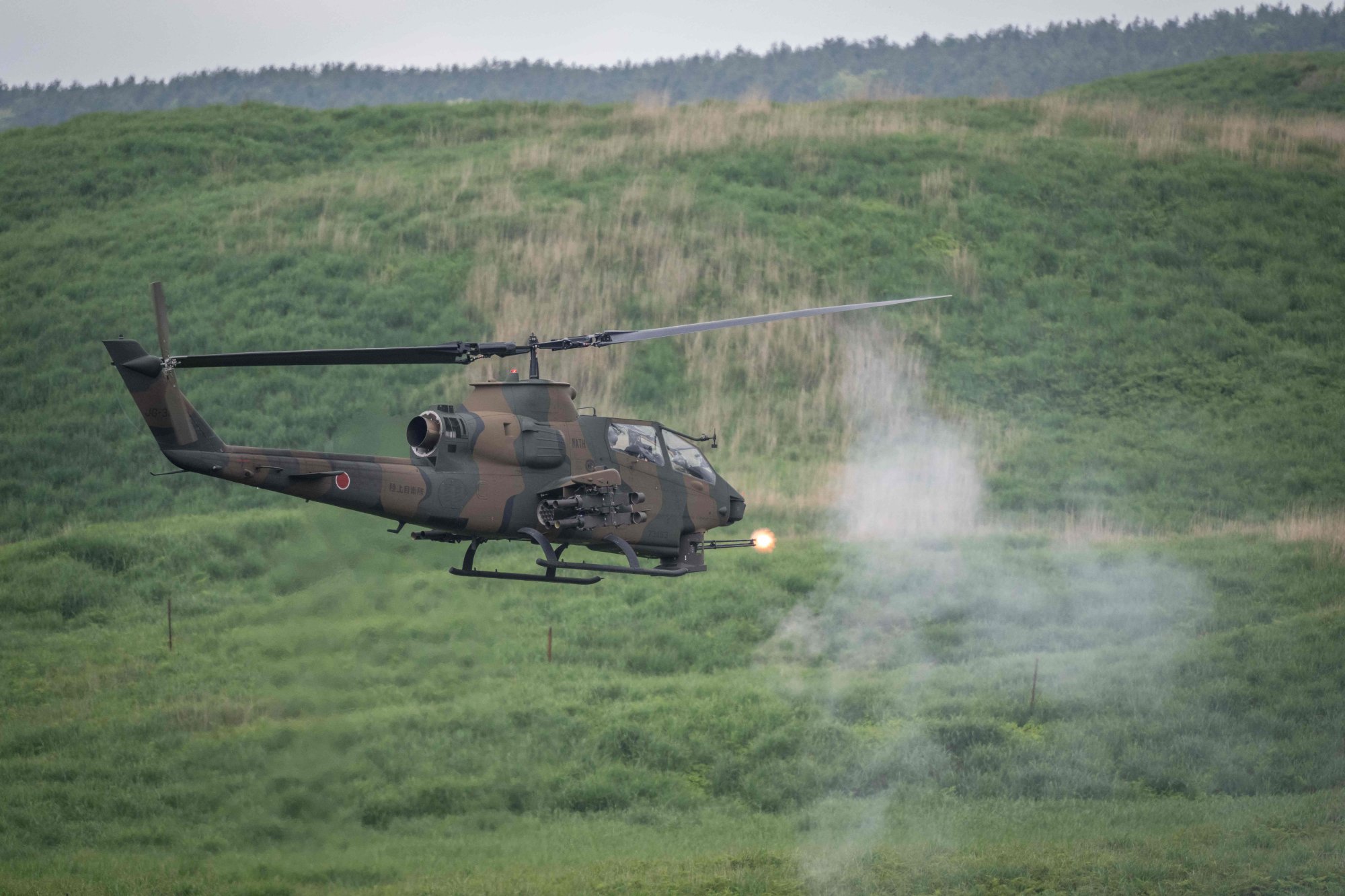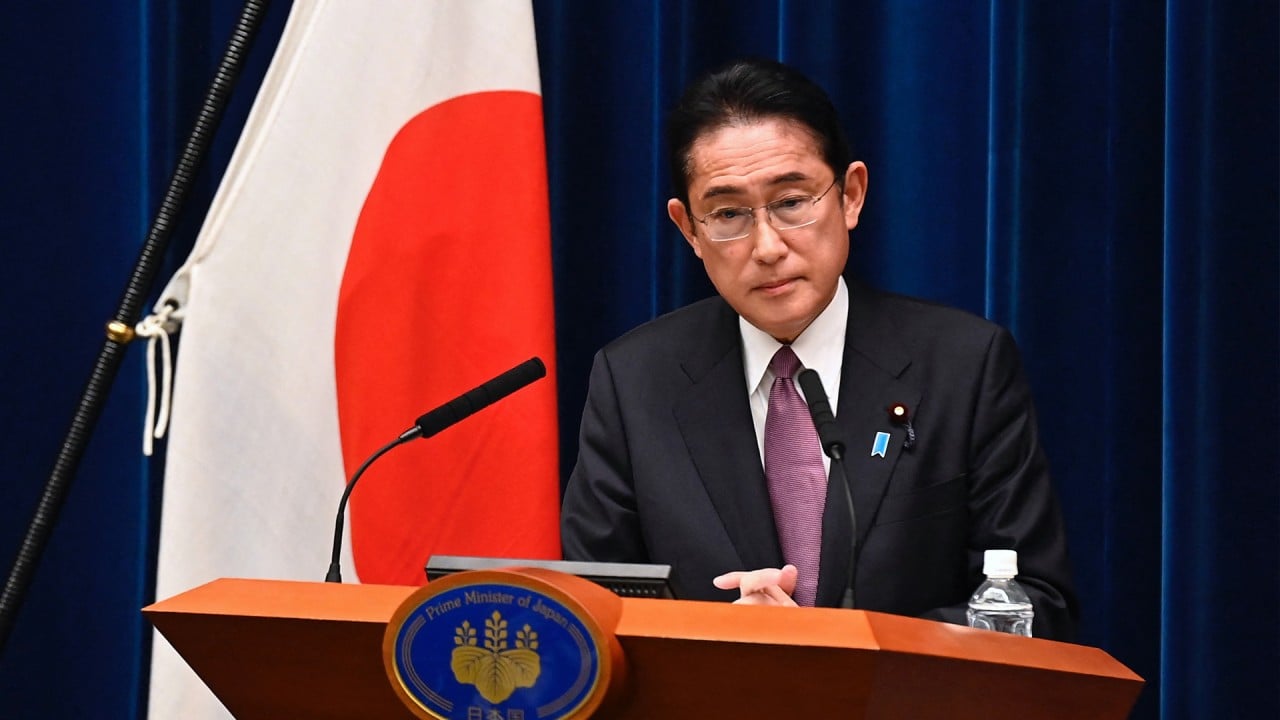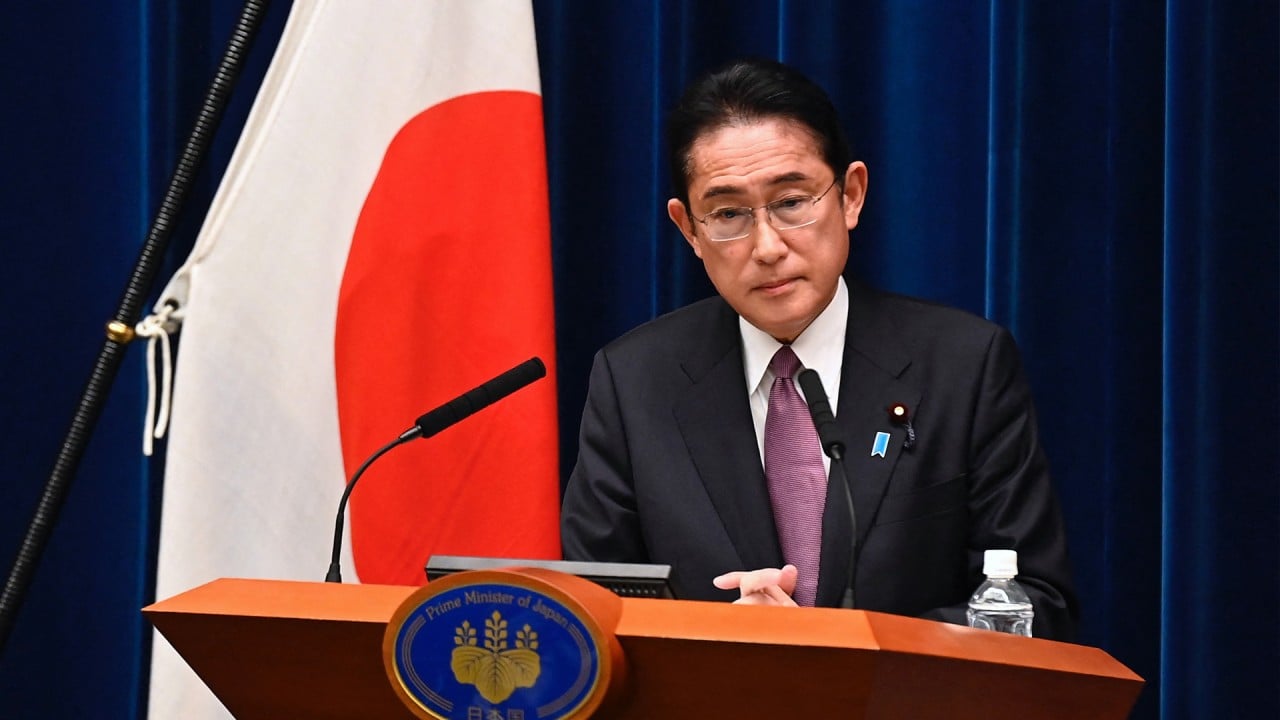Alarmed by a new security deal between Russia and North Korea, Japan is poised to bolster its defensive alliances and ramp up multinational military drills in the months ahead – though analysts doubt the Moscow-Pyongyang pact will significantly alter Tokyo’s defence spending or posture.
Tokyo joined the United States and South Korea in issuing a strongly worded condemnation of the agreement on mutual defence that was signed when Russian President Vladimir Putin met North Korean leader Kim Jong-un in Pyongyang last week.
In a joint statement demonstrating the three governments’ “comprehensive strategic partnership”, they “condemned in the strongest possible terms” deepening military cooperation between the two pariah states, including arms transfers that they said “prolong the suffering of Ukrainian people, violate multiple United Nations Security Council Resolutions, and threaten stability in both Northeast Asia and Europe”.
The US added that its commitment to the security of both Japan and South Korea remained “ironclad”.

Separately, the Japanese government communicated its concerns to Russia in a meeting in the Russian capital on Friday.
Masashi Nakagome, director general of the foreign ministry’s European Affairs Bureau, met Lyudmila Vorobyova, director of the Russian foreign ministry’s Third Asian Department, and called on Russia to halt its invasion of Ukraine.
Vorobyova said Japan’s protests were “categorically unacceptable”, Jiji Press reported, and added that the Russian government intended to create a new security structure for the Eurasian region.
“It is not at all clear what this agreement means at the moment, but the primary reason it has been signed is because Russia is having problems in Ukraine and cannot produce enough munitions for its forces there,” said Garren Mulloy, an international-relations professor at Daito Bunka University and a specialist in military issues.
“In return, North Korea wants an access point to avoid international sanctions, which they get with the land border and the maritime trade they can have,” he said. “North Korea also wants help with its space programmes, and Russia is therefore a logical partner for that.”
Other items on the North’s shopping list included technology for its nuclear and long-range missile programmes, Mulloy said.
However, that will not affect Japan’s present defence plans, he said.
“Tokyo only recently announced a significant increase in defence spending – nearly doubling previous spending – over the next five years, and some of that will be going on missile defence systems, including two new warships fitted with the Aegis missile interceptor system,” he said.

According to Mulloy, Japan has already factored the growing threat posed by North Korean missiles into its existing defence outlays.
He said another approach might be additional unilateral or multilateral sanctions, although the regime in Pyongyang has managed to withstand such pressure so far and there is little else that can be targeted with sanctions.
Russia effectively ignoring UN-imposed sanctions – including those that Moscow previously supported – also means little leverage remains.
“I see the Japanese response taking the form of pressure through alliances with the US and South Korea,” said Ryo Hinata-Yamaguchi, an assistant professor of international relations at the University of Tokyo.
“I do not expect to see any increases in defence spending, but I do anticipate that Tokyo will be more attentive to the potential threats posed by North Korea,” he said. “Right now, there is not a lot more that Japan can do with regard to North Korea than it is doing now.”
Hinata-Yamaguchi said he expects Japan, the US and South Korea to step up joint training to project their alliance’s strength and resilience, with three-nation air and naval drills likely to be increasingly high profile and designed to send a message to Pyongyang.
The conservative Sankei Shimbun newspaper has called for the government of Japanese Prime Minister Fumio Kishida to be more proactive in challenging North Korea. In an editorial published on Monday, headlined “Russia-North Korea unholy alliance a direct threat to Japan”, the newspaper said the “nuclear-armed, despotic regimes” had brazenly violated international law.
It said the terms of the new defence treaty meant “there is a risk” that Russia could attack Japan if mainland China attempts to invade Taiwan or North Korea launches “diversionary provocations” involving Japan, the US or South Korea to support its allies.
“Both North Korea’s military support for Russia and Russia’s assistance to North Korea to strengthen its nuclear and ballistic missile capabilities are disruptive of world peace and must be condemned,” the editorial said.
“Prime Minister Kishida should use news conferences and other such opportunities to frankly discuss the perils posed by the Russia-North Korea alliance,” it added. “Furthermore, he should explain Japan’s potential responses to the Japanese public.”



